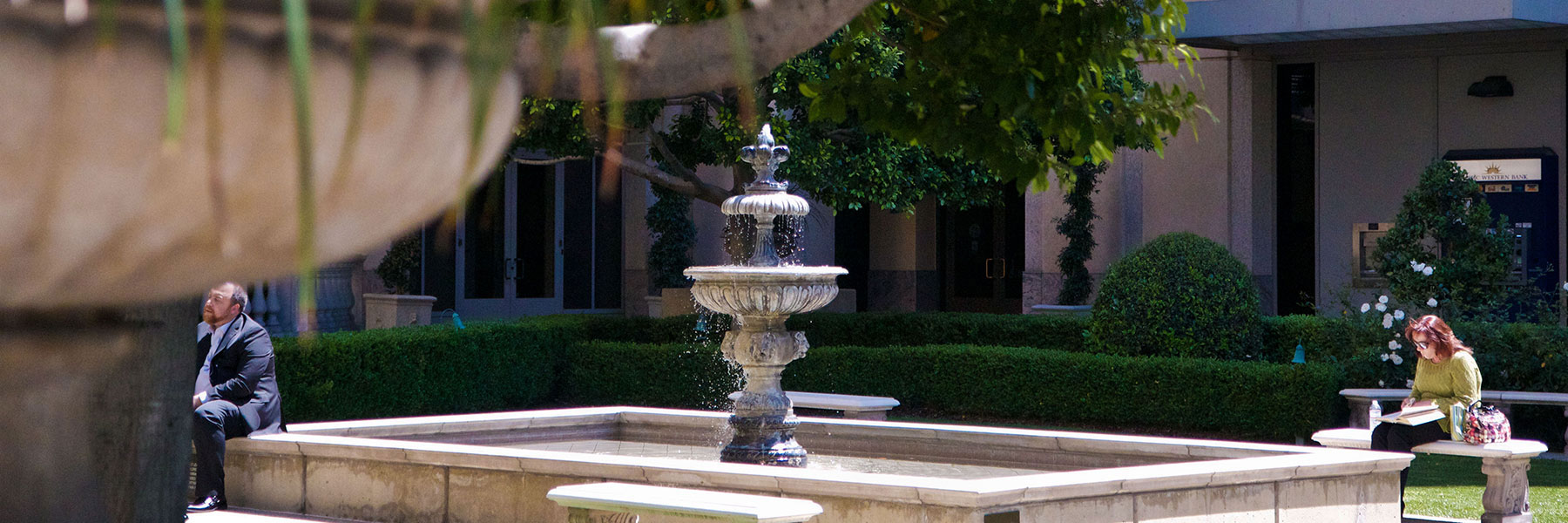21 Jan The Real Deal: A Look Inside Rick Caruso and CBRE’s Masonic Temple
CBRE’s offices in adaptive reuse project have no assigned seating
January 21, 2016 11:01AM
By Hannah Miet
There are 110 CBRE Group Inc. employees now working inside of what used to be an active Masonic Temple at 234 S. Brand Boulevard in Glendale.
Grove developer Rick Caruso, who is mostly known for his mall properties and full-service apartments, took on the office market last April when he acquired the nine-story 1929 landmark Art Deco building and restored it into a Class A open-floor-plan office with retail space. It is now home to CBRE’s North Los Angeles office, which relocated from Universal City.
Caruso’s development firm, Caruso Affiliated, also acquired two adjacent buildings and an adjoining lot which will soon be home to burger joint Shake Shack’s second West Coast location. All the retail is set to open by the end of the year. Meanwhile, CBRE employees are already settled into the office portion.
Caruso renovated the temple in less than 10 months after the start of its rehabilitation and redesign. It was, in part, by moving so quickly that he was able to secure CBRE as a tenant. The 24,000 square-feet space was designed by Gensler, with programming, strategy and change management done by CBRE’s Workplace Strategy group.The temple is the latest of 30 CBRE offices that doesn’t have assigned seating in favor of chic glass conference rooms that can be booked with an app, part of the firm’s “Workplace 360” initiative that was piloted in its Downtown L.A. headquarters to encourage collaboration across departments.
The Masonic office has a stadium-seating assembly area in the vaulted cathedral-trussed penthouse, and has exposed concrete and structural steel elements from the original building. There were 18 new, 20-foot-tall windows installed as part of the redesign.
The temple sits across the street from Caruso’s Americana at Brand mall property, and the developer is leaning on the businesses there to offer a concierge service to CBRE’s workers. Using the Masonic Temple app, which has a logo of the temple’s shape, CBRE workers can call a concierge to pick up and drop off their dry cleaning, fill their cars with gas, arrange for party planning and order deskside pedicures, among an array of other menu items. It’s a concept Caruso hopes to launch in more office buildings as he acquires them. He’s currently on the hunt for the next one.
“This type of office concept completely changes the conversation about work-life balance,” Caruso said in a release.
The Masonic Temple, originally completed in 1929 and designed by Arthur G. Lindley, had been without a permanent tenant for 30 years before Caruso’s acquisition. It had housed several Masonic organizations, a movie theater, a dance studio, night club and a classical repertory theater in the past. It is the first prominent adaptive reuse of a historic structure in Glendale and CBRE’s first office within an adaptive reuse project.
Lew Horne, president of the Los Angeles and Orange County region for CBRE, said in a release that the office serves a dual purpose of showing the firm’s clients what can creatively be done with a space.
Glendale boasts a few other prominent employers, including DreamWorks and Nestle.
Source: The Real Deal


